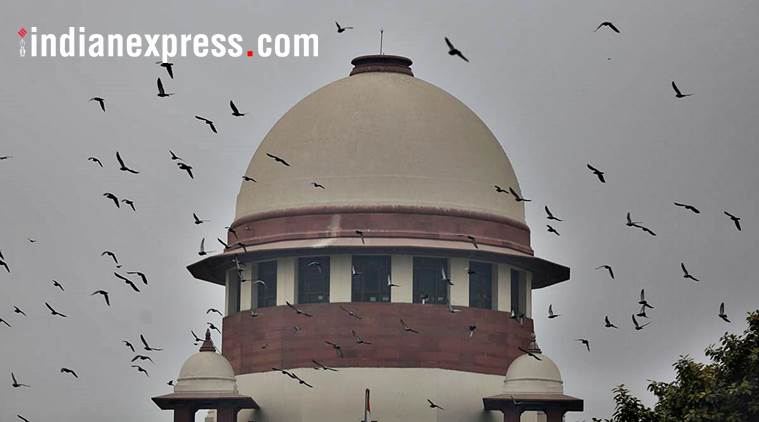 The Supreme Court agreed to examine the constitutional validity of practices like polygamy, nikah halala, nikah misyar and nikah mutah among Muslims. (Express Photo by Tashi Tobgiyal/File)
The Supreme Court agreed to examine the constitutional validity of practices like polygamy, nikah halala, nikah misyar and nikah mutah among Muslims. (Express Photo by Tashi Tobgiyal/File)
Seven months after it set aside the centuries-old practice of instant triple talaq or talaq-e-biddat in which Muslim men divorce their wives by uttering talaq three times in quick succession, the Supreme Court Monday agreed to examine the constitutional validity of practices like polygamy, nikah halala, nikah misyar and nikah mutah among Muslims.
While polygamy allows a Muslim man to have four wives, nikah halala deals with the process in which a Muslim woman, in order to remarry her former husband, has to marry a different person and get divorced from him. Nikah mutah and nikah misyar, the petitioners told the Supreme Court, are “temporary” marriages for “pleasure”.
A bench of Chief Justice of India Dipak Misra and Justices A M Khanwilkar and D Y Chandrachud, while issuing notice to the Centre and other parties, agreed to let the matter be heard by a Constitution Bench given its importance. It said the CJI will decide the Constitution Bench.
A copy of the petition will be served on the Attorney General. The bench, however, declined to issue notice to the Law Commission of India.
The bench agreed with the contention of the parties that these issues had not been addressed by the Supreme Court in its August 22 order, in the Shayara Bano case, that abolished triple talaq.
“It is urged by them that the majority opinion of the Constitution Bench in the case of Shayara Bano etc. vs Union of India & Ors etc… has not dealt with these aspects. They have drawn our attention to various paragraphs of the judgment to buttress the point that the said issues have not been really addressed as there has been no delineation on these aspects. On a perusal of the judgment, we find the submission of the learned counsel for the parties/petitioners is correct that these concepts have not been decided by the Constitution Bench,” the bench said.
READ | Triple talaq Bill injustice to Muslim women, oppose it, says Asaduddin Owaisi
The order came on four petitions challenging the practices. These petitions were filed by Delhi BJP leader Ashwini Upadhyay, Sameera Begum and Nafeesa Begum (two women who claimed to be victims of polygamy) and Telangana lawyer and social activist Moullim Mohsin bin Hussain bin Abdad al Kathiri.
In his petition, Upadhyay has sought a declaration that Section 2 of the Muslim Personal Law (Shariat) Application Act, 1937, is “unconstitutional and violative of Articles 14, 15 and 21 of the Constitution, insofar as it seeks to recognise and validate the practice of polygamy and nikah halala”.
Section 2 of the Shariat Act says that Muslim marriages shall be governed by the Muslim Personal Law.
Upadhyay’s petition contends that though the Supreme Court, in its August 22 order, had declared triple talaq as “void and unconstitutional”, the executive had not taken steps to prohibit or declare it and other practices like nikah halala and polygamy as offences under the Indian Penal Code.
ALSO READ | The triple talaq Bill: A mediocre legislation and a missed opportunity
He said the practice of triple talaq, polygamy and nikah halala are violative of Articles 14, 15 and 21 of the Constitution and injurious to public order, morality and health. “Hence, can be superseded by the State just as it prohibited human sacrifice or the practice of Sati,” he said.
Kathiri, who also raised the issue of nikah mutah and nikah misyar, submitted that “a complete ban on nikah halala, nikah mutah, nikah misyar and polygamy has been the need of the hour as it renders Muslim women extremely insecure, vulnerable and infringes their fundamental rights”.
He said that “the importance of ensuring protection of women from” these practices “have profound consequences on the quality of justice rendered in the country as well as ensuring a Iife of dignity for the citizens as guaranteed by Part III of the Constitution”.
He said that a man “by considering the woman an object of man’s desire” and by practising “nikah halala, nikah mutah, nikah misyar and polygamy causes gross affront to the dignity of women”.